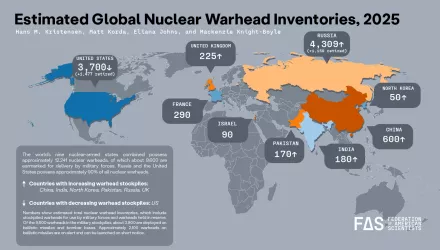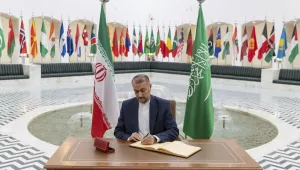India’s decision to walk out of step with the international community on Iran isn’t just a slap in the face for the U.S. – it raises questions about its ability to lead.
The Indian government’s ill-advised statement last week that it will continue to purchase oil from Iran is a major setback for the U.S. attempt to isolate the Iranian government over the nuclear issue.
The New York Times reported recently that Indian authorities are actively aiding Indian firms to avoid current sanctions by advising them to pay for Iranian oil in Indian rupees. It may go even further by agreeing to barter deals with Iran – all to circumvent the sanctions regime carefully constructed by the U.S. and its friends and allies. According to the Times, India now has the dubious distinction of being the leading importer of Iranian oil.
This is bitterly disappointing news for those of us who have championed a close relationship with India. And, it represents a real setback in the attempt by the last three American Presidents to establish a close and strategic partnership with successive Indian governments.
The Indian government’s defense is that it relies on Iran for 12 percent of its oil imports and can’t afford to break those trade ties. But India has had years to adjust and make alternative arrangements. Ironically, the United States has had considerable success on the sanctions front in recent months. The EU has decided to implement an oil embargo on Iran, the U.S. is introducing Central Bank sanctions and even the East Asian countries, such as China, have imported less Iranian oil in recent months. That makes India’s recent pronouncements seem extremely out of step and out of touch with the new global determination to isolate and pressure Iran to negotiate in order to avoid a catastrophic war.
There’s a larger point here about India’s role in the world. For all the talk about India rising to become a global power, its government doesn’t always act like one. It is all too often focused on its own region but not much beyond it. And, it very seldom provides the kind of concrete leadership on tough issues that is necessary for the smooth functioning of the international system.
The Indian government has supported the four U.N. Security Council resolutions passed since 2006. It says Iran should give up its nuclear ambitions. But India hasn’t stepped up to a leadership role in the negotiations and has resisted the option of being a bridge between the Iranian government and the West. It has, instead, been largely passive and even invisible on this critical issue.
I wrote a Boston Globe column recently arguing that the U.S. should commit to an ambitious, long-term strategic partnership with India. I remain convinced of its value to both countries and to the new global balance of power being created in this century.
With its unhelpfulness on Iran and stonewalling on implementation of the landmark U.S.-India Civil Nuclear Agreement, however, the Indian government is now actively impeding the construction of the strategic relationship it says it wants with the United States.
Presidents Obama and Bush have met India more than halfway in offering concrete and highly visible commitments on issues India cares about. On his state visit to India in November 2010, for example, President Obama committed the U.S. for the very first time to support India’s candidacy for permanent membership on the U.N. Security Council. Like many others who wish to see India become a close strategic partner of the U.S., I supported the president’s announcement.
Unfortunately, India has made no corresponding gesture in return for the big vision that Obama and Bush have offered the Indian leadership. It’s time that India speaks much more clearly about the priority it places on its future with the United States. Most importantly, India must begin to provide the kind of visible leadership on difficult issues such as Iran that its many friends in the United States and around the world had expected to see by now.
Burns, Nicholas. “India lets U.S. down on Iran.” The Diplomat, February 20, 2012




